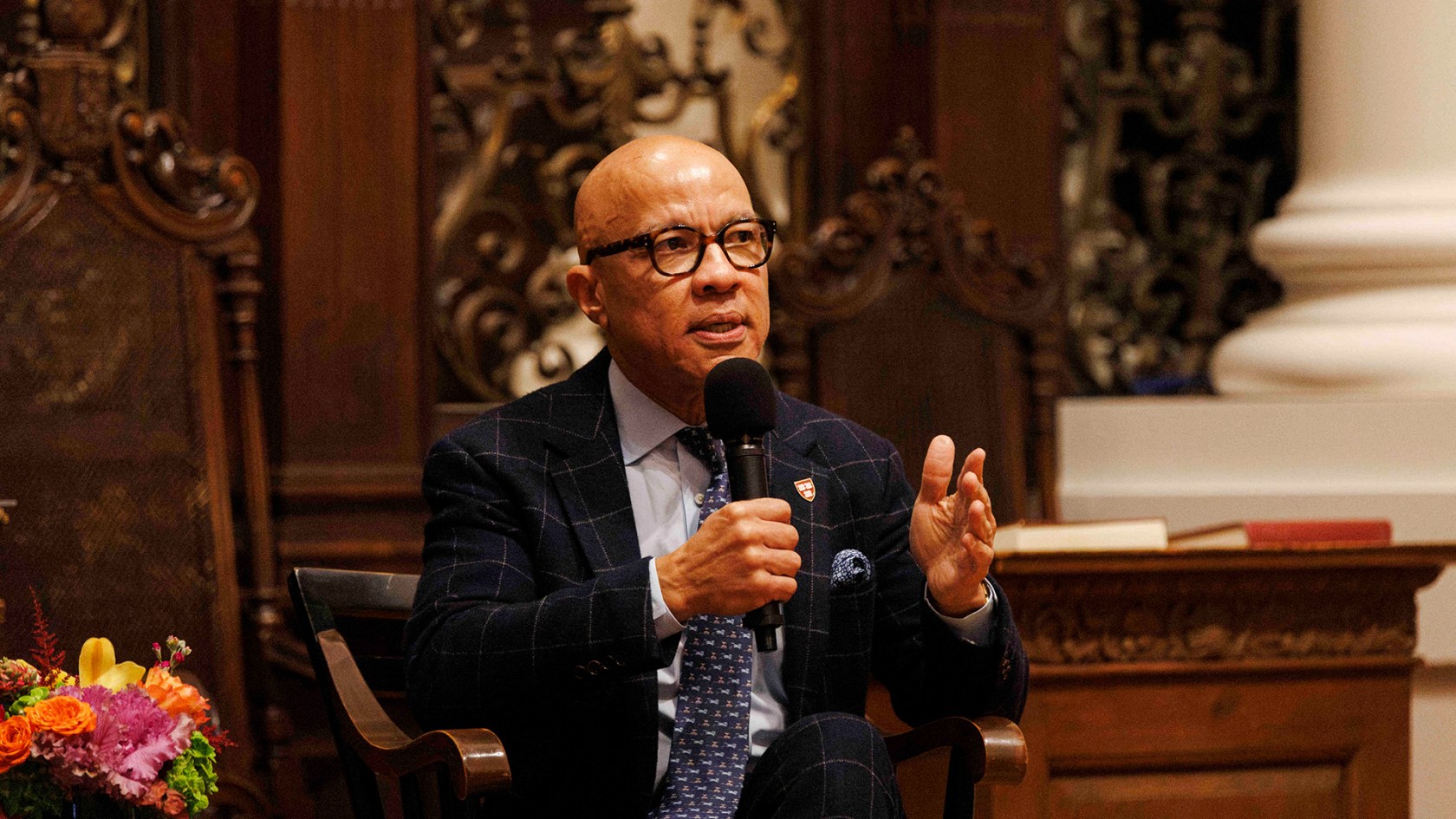
Photos by Niles Singer/Harvard Staff Photographer
‘Our American compass is still true’
MLK Lecture honoree Darren Walker urges hope, courage in fight against inequality, polarization
In December 1967, as Americans grappled with social unrest over the Vietnam War and growing protests to end racial inequality, Civil Rights leader Martin Luther King Jr. said the U.S. was “at a crossroads of history.”
Nearly 60 years later, the nation faces a similar moment amid political polarization and rising inequality, Darren Walker, the 2025 honoree of the Dr. Martin Luther King Jr. Commemorative Lecture at Harvard, told an audience gathered Monday in Memorial Church.
“Today, I believe, America once again is at ‘a crossroads of history,’” Walker said. “America, once again, must ‘choose a new path and move upon it with resolution and courage.’ America, once again, must ‘work creatively against despair … and against indifference.’”
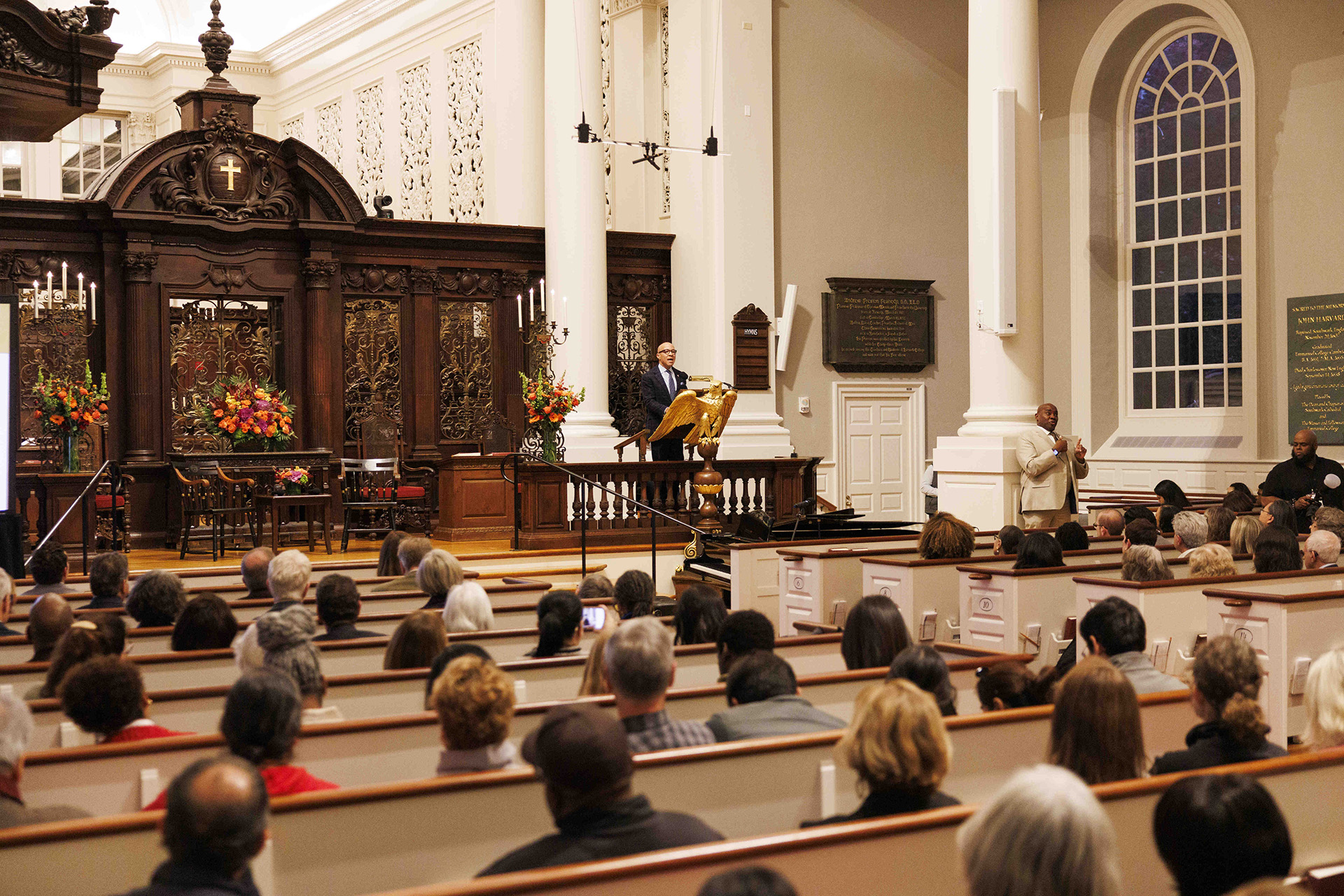
Democracy faces existential peril in the U.S. due to growing inequality, said Walker. According to a 2024 report from the Congressional Budget Office, in 2022 families in the top 10 percent of the distribution held 60 percent of all wealth in the country.
“We got here because of the inequality about which Dr. King cautioned all those years ago,” said Walker. “The fact is, through the decades, America’s mobility escalator has slowed and halted for many. As a result, a pernicious form of distrust and hopelessness has entrenched itself among people of all communities — among people of all races and regions, in red states and blue ones. This is the crisis of our time — the crisis long simmering beneath the surface.”
Walker, president of the Ford Foundation, spoke at the fourth MLK Lecture commemorating the 1962 speech King gave at Harvard on the future of integration. Organized by Community and Campus Life, the annual event recognizes individuals for their contributions to advancing justice and equality. Past honorees are Freeman A. Hrabowski III, president emeritus of The University of Maryland, Baltimore County; former U.S. Attorney General Loretta Lynch; and civil rights attorney Sherrilyn Ifill, president and director-counsel emeritus of the NAACP Legal Defense Fund.
“Tonight, we gather in this sanctuary to honor another leader who has worked tirelessly at the intersection of justice, service, and hope,” Harvard President Alan Garber said, describing Walker as “a steadfast advocate for equality and opportunity.”
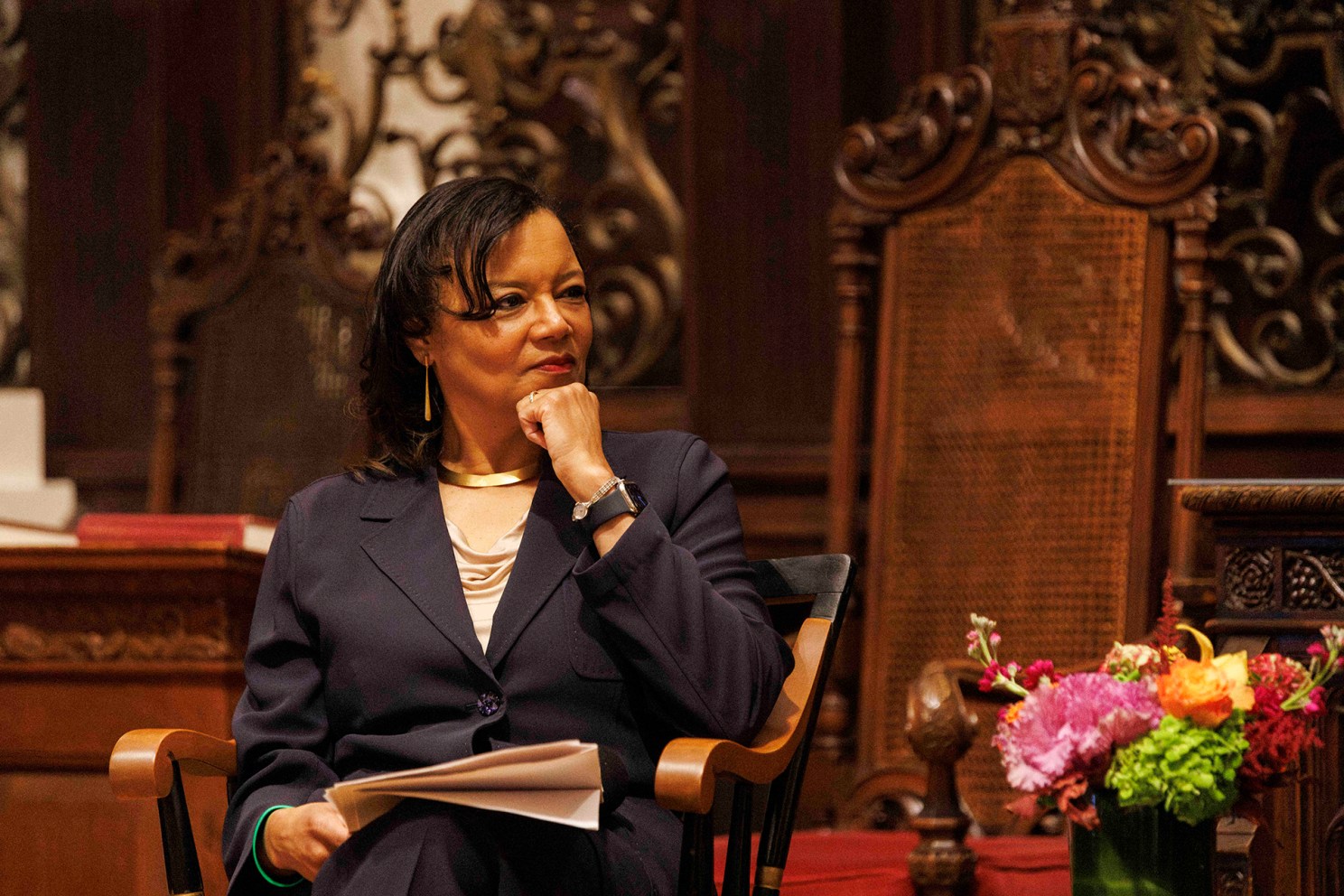
Tomiko Brown-Nagin, dean of the Harvard Radcliffe Institute.
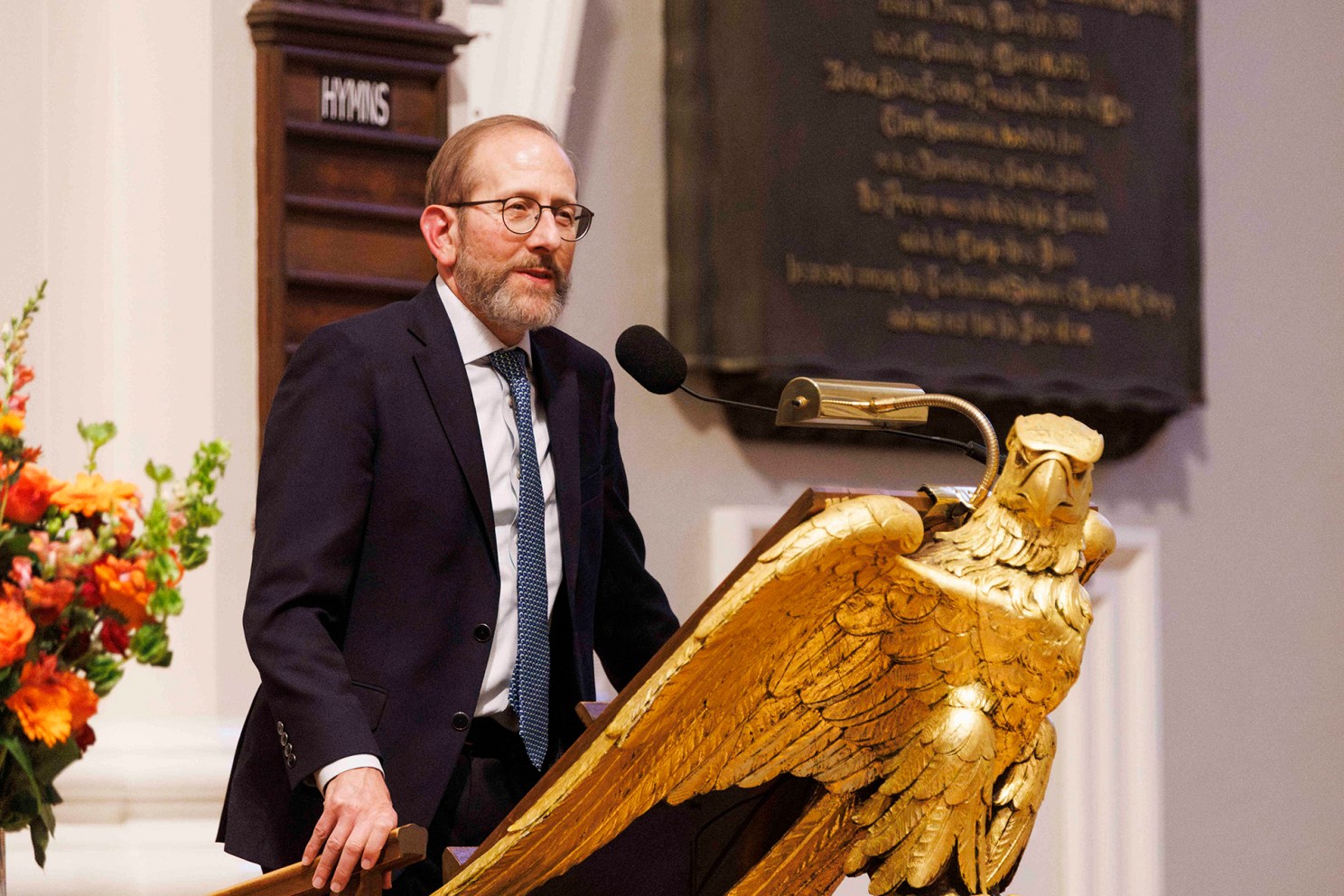
Harvard President Alan Garber.
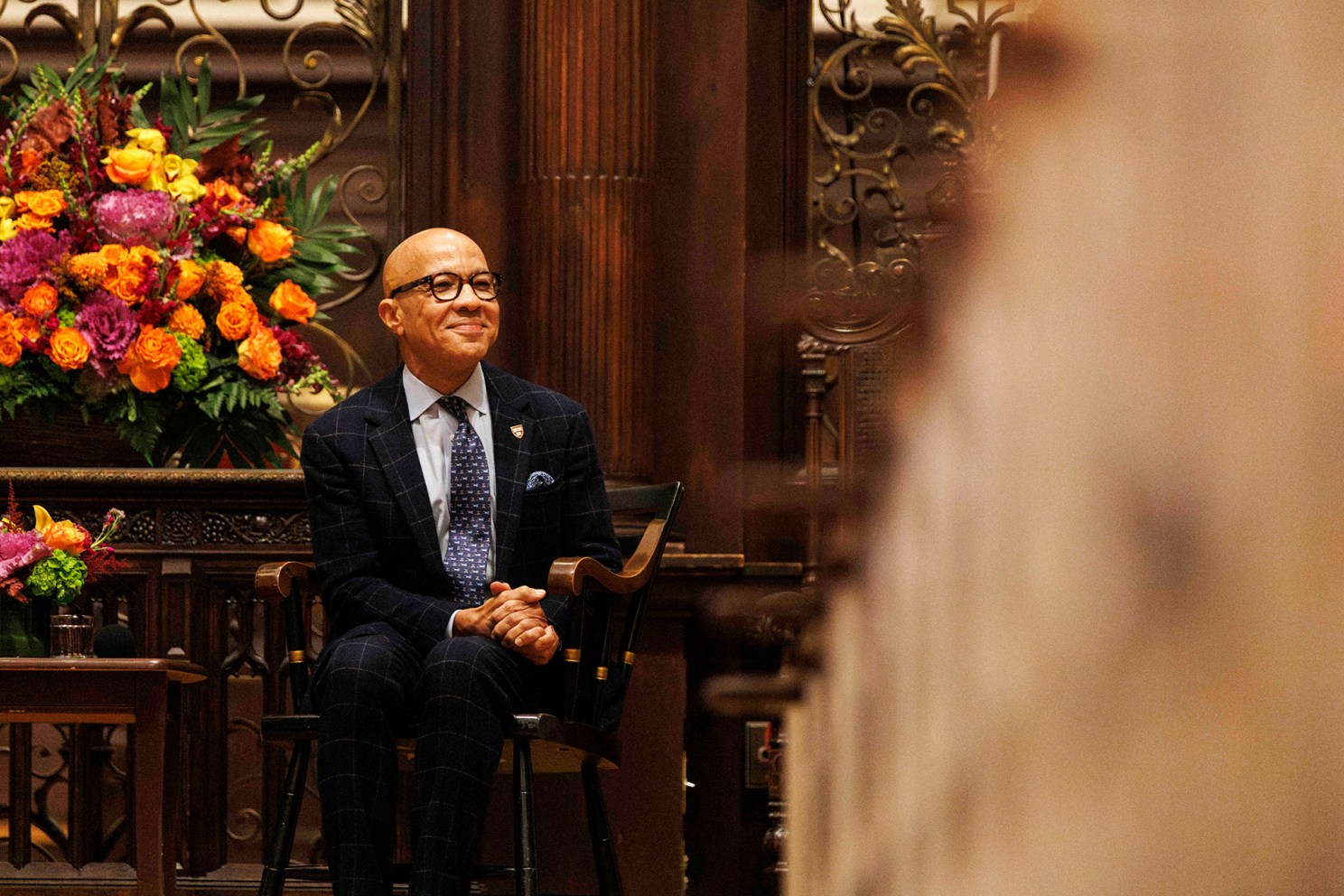
“Hope is the oxygen of democracy,” said Walker during his address.
Before becoming the president of the Ford Foundation, a $16 billion international social justice philanthropy, Walker was vice president of the Rockefeller Foundation. He co-founded both the U.S. Impact Investing Alliance and the Presidents’ Council on Disability Inclusion in Philanthropy. In 2024, then-President Joe Biden awarded Walker the National Humanities Medal.
Walker lamented today’s deep divide in American society, the normalization of contempt and hatred, and the epidemic of indifference to injustices of all kinds. He urged the audience to choose “resolution and courage over despair,” and “active, engaged citizenship” over indifference, and to recommit to “the idea of America,” where “radical ideas and noble aspirations” were brought to life by “the righteous actions” of people such as King and others who had the “courage to make wrong into right.”
During a conversation with Tomiko Brown-Nagin, dean of the Harvard Radcliffe Institute, following his address, Walker reminisced about his improbable rise from his birth in a Louisiana charity hospital and his childhood in Ames, Texas, to the helm of one of the world’s largest philanthropic organizations. When he was appointed president in 2013, Walker became the second Black American to lead the Ford Foundation.
“I was born in an America where poor little Black boys and girls who lived in shotgun shacks and dirt roads in rural Texas could dream,” said Walker, a member of the first Head Start class in 1965 and the recipient of B.A., B.S., and J.D. degrees from the University of Texas at Austin. “This is what I worry about today. Do those little Black and white and brown boys and girls living in places like Ames, Texas, feel as I felt that America is cheering them on, that their country wants them to succeed?”
“America’s mobility escalator has slowed and halted for many. As a result, a pernicious form of distrust and hopelessness has entrenched itself among people of all communities.”
Walker, who wrote the book “The Idea of America: Reflections on Inequality, Democracy, and the Values We Share,” released last month, asked the audience to work together to realize the promise of American democracy.
“America has only fully functioned as a democracy for one lifetime — for my lifetime,” said Walker. “When I was a child, the adults in my life could not vote in our Louisiana and Texas towns. I was 6 years old when the Voting Rights Act was passed. And even these protections are hollowed out by the day — as are so many of our fundamental rights. For my part, though, I believe that our American compass is still true.”
In closing, Walker asked his listeners to pursue optimism instead of despondency and fight against inequality to save democracy. “Hope is the oxygen of democracy, while inequality suffocates democracy,” he said.
“Like the poet says, America has never been America to me,” said Walker quoting Langston Hughes’ poem “Let America Be America Again.”
“But it can be — and it will be — if we work against ‘despair and indifference.’ It can be — and will be — when, as Dr. King said at Harvard in 1962: ‘We emerge from the bleak and desolate midnight of man’s inhumanity — and into the bright and glittering daybreak of freedom and justice.’”




